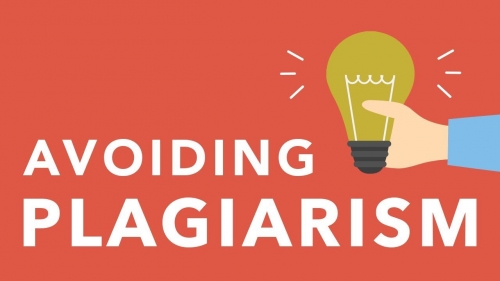Select a category
Advertisement

Guidelines On Plagiarism
5 years ago
Reliance on material/academic writing produced by others is an essential and acceptable part of the preparation of assignments or research work in any academic capacity (unless it is overdone). This material may be contained in textbooks, thesis, the internet, monographs, journal articles, yearbooks, e-books, magazines, newspapers, e-mails, conference papers/reports, instruments, statutes, oral/phone conversations, blogs, etc. Giving credit to other people’s ideas/writing where these have been borrowed or relied upon is the highest mark of academic integrity. Plagiarism occurs when a student refers to or incorporates such material and presents it as their own idea or work without acknowledging the source of the information or ideas. In essence, plagiarism is stealing another person’s ideas and attributing them to one’s ingenuity. It gives a student unfair academic advantage over others completing the same task and erodes the academic integrity of the Faculty.
Plagiarism can take various forms, including:
1. Copying the material word for word (verbatim) without indicating the source either using quotation marks or block-quoting;
2.
Advertisement
3. Not setting out references, either in the form of footnote references and/or bibliography for sources you have used throughout your work;
4. Piecing together sections from various sources to create a new document without crediting the various sources
5. Colluding with others to prepare a piece of work/research paper that is then submitted as one’s own;
6. Permitting another student to copy one’s work and submit it as their own;
7. Reproducing work (whether in its entirety or parts thereof) submitted by another student, whether at the Faculty or elsewhere in the world;
8.
Advertisement
9. Resubmitting one’s own or another student’s previously graded work; or
10. Hiring another student/professional to prepare work which is then submitted as one’s own;
Plagiarism is a strict liability academic offence. This means that the student will be penalised whether or not it is demonstrated that they intended to be dishonest. When in doubt as to whether an act amounts to plagiarism, the student should consult their supervisor/tutor before submitting the final research project for assessment. Plagiarism is not only frowned upon and considered academic misconduct in the global academic community, but it is also a criminal offence which carries with it serious penalties, including annulment of the student’s grades and the institution of legal action against the student.
To avoid inviting the plagiarism penalties, students are advised to:
1. Only submit work that is verifiably their own original work;
2.
Advertisement
3. Indicate precisely and reference appropriately ideas or information produced by another author;
4. Not permit other students to copy their work and present it as their own;
5. Never copy other students’ work
PLAGIARISM DECLARATION
I, _______________________ of Mat No _______________________ declare as follows:
1. I have read the guidelines on what constitutes plagiarism.
2. I understand what plagiarism entails and why the Faculty of Law maintains a strict policy in this regard.
3. I understand that should my work violate the plagiarism guidelines, the attendant penalties apply whether or not the violation was intentional.
4. I declare that this assignment/dissertation is my own, original work. Where someone else’s work has been used (whether from a printed source, the internet or any other source), due acknowledgment has been given and reference made according to the requirements of the Faculty of Law.
5. I confirm that this work has not been submitted either to this Faculty or to any other academic institution for assessment and/or accreditation.
6. I affirm that I did not make use of another student’s work and submit it as my own neither did I allow anyone to copy my work with the aim of presenting it as his or her own work.
7. I declare that I did not hire anyone to prepare this work and then submit it as my own.
8. I affirm that I did not translate any part of this work from another language without acknowledging the source.
Signature: _______________________ Date: _______________________
.
Disclaimer If this post is your copyrighted property, please message this user or email us your request at [email protected] with a link to this post
Advertisement
 Ugobaby
Ugobaby